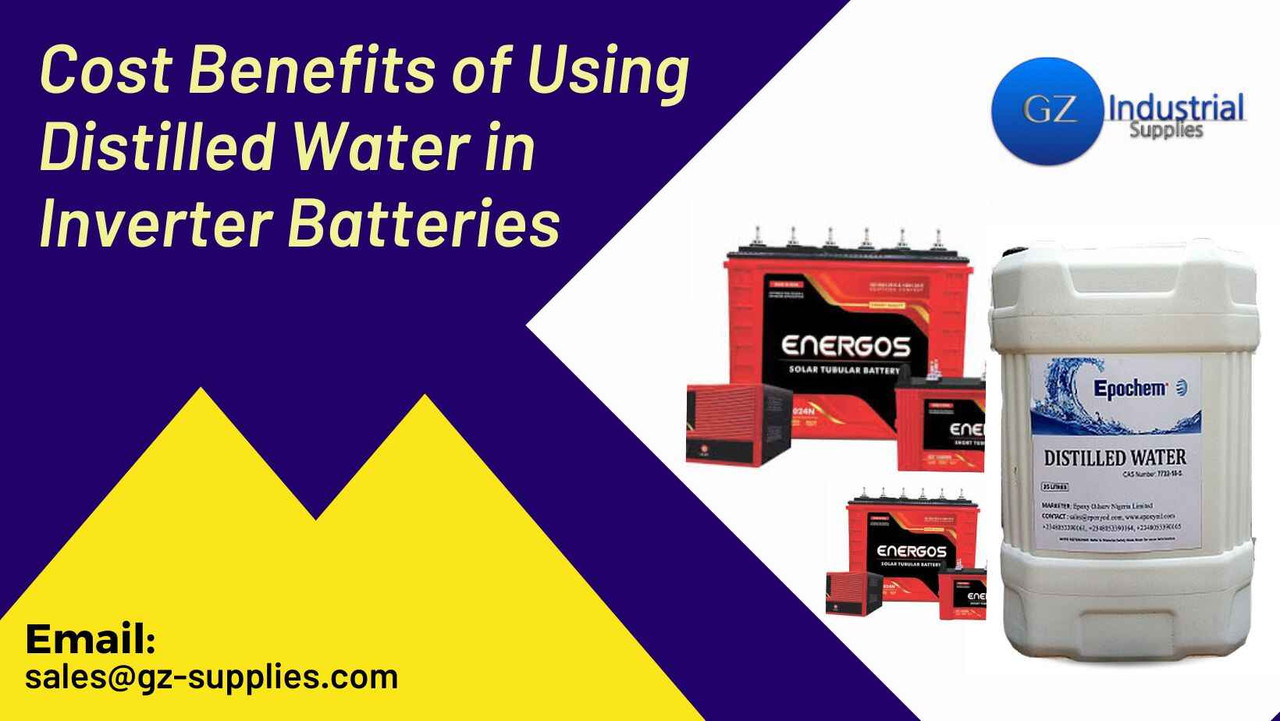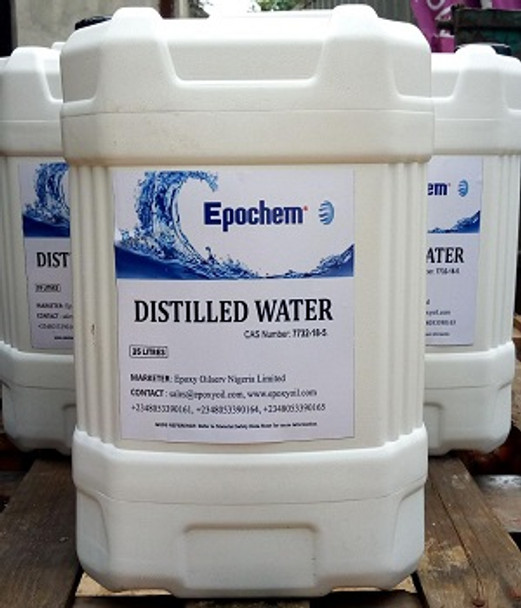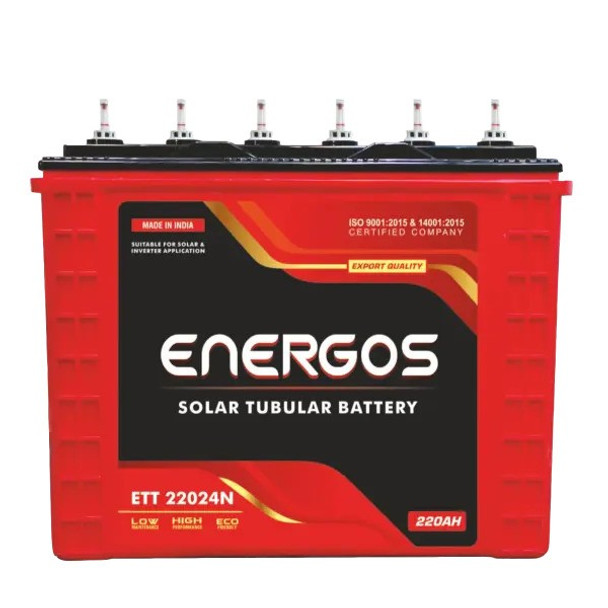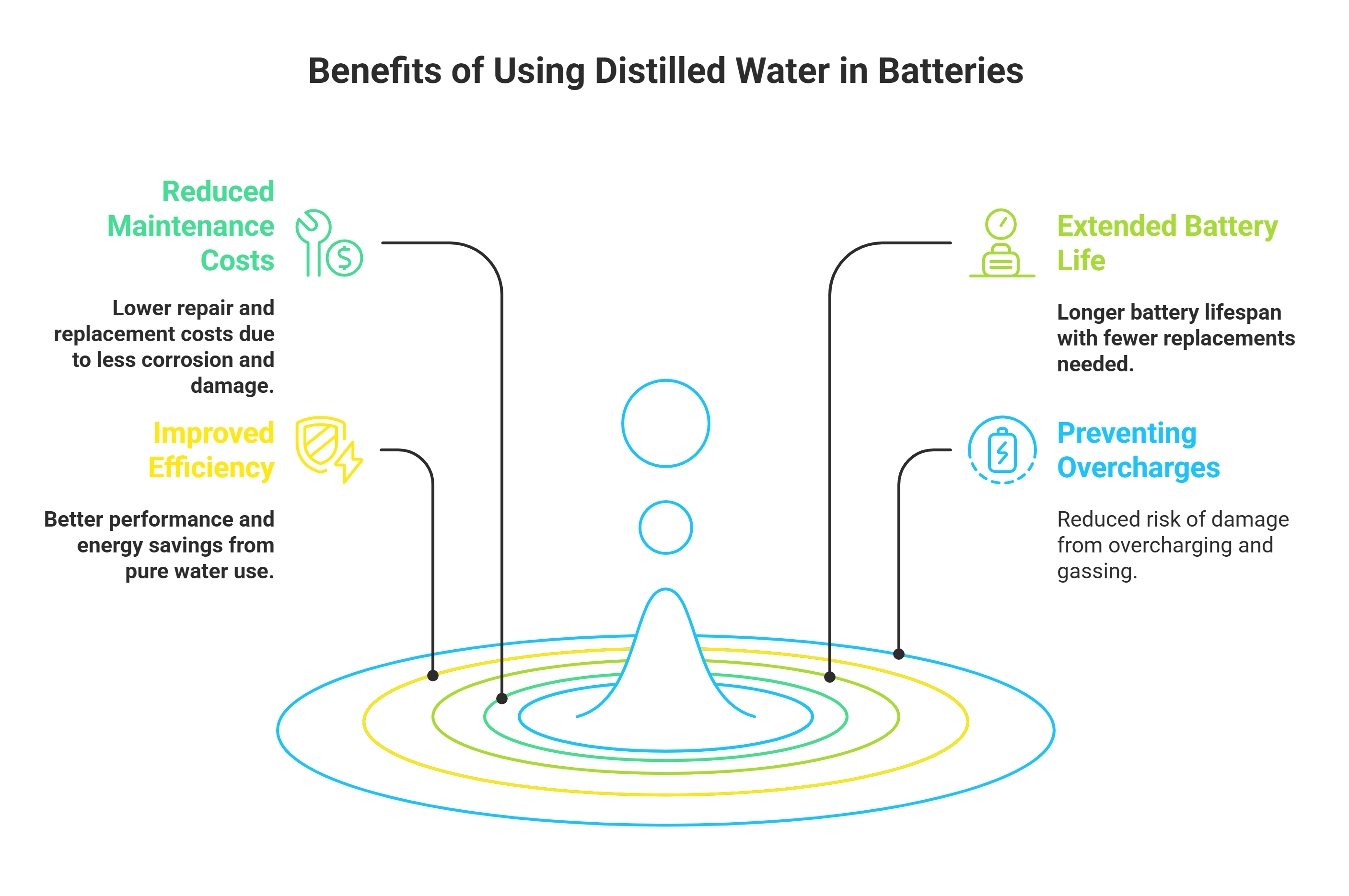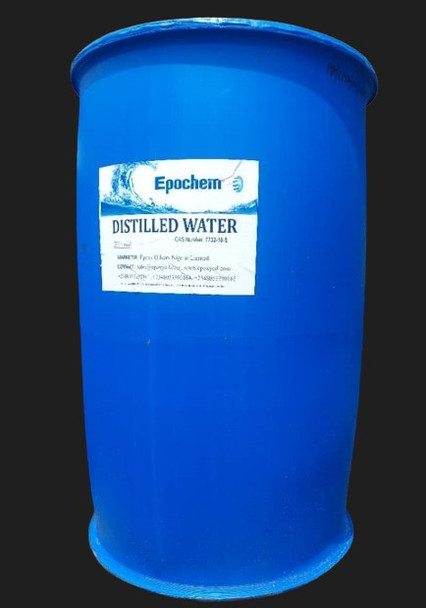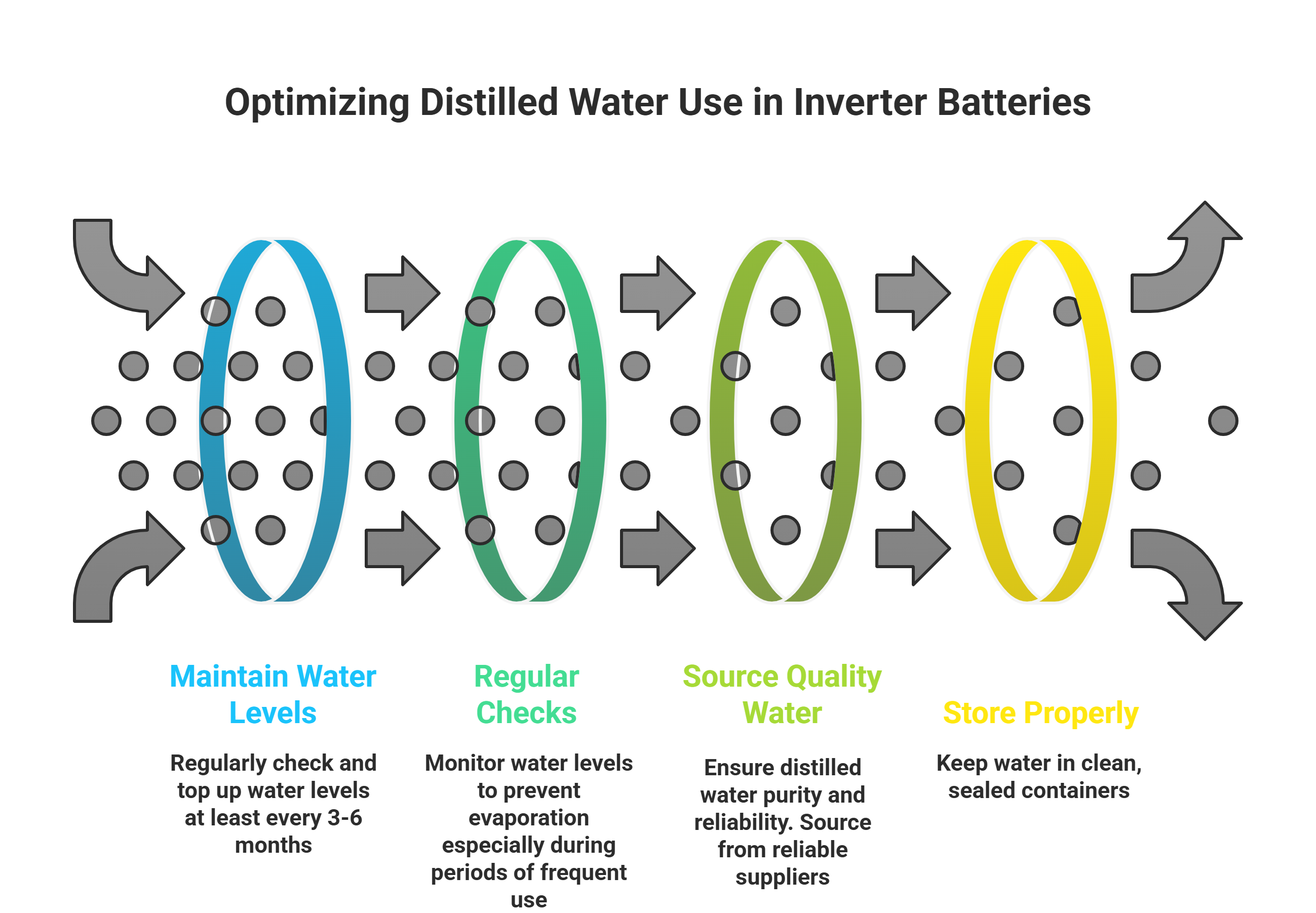Cost Benefits of Using Distilled Water in Inverter Batteries
Introduction
Inverter batteries are an essential component of many energy systems, especially in areas prone to power outages or where energy storage is necessary for uninterrupted power supply. These batteries work by storing electrical energy for later use, and their efficiency and longevity are largely dependent on the quality of the electrolyte inside the cells. One critical element of maintaining inverter battery health is the water used in the electrolyte solution.
This article focuses on the importance of using distilled water in inverter batteries, and the cost benefits. By the end of this guide, you’ll understand why opting for distilled water is a smart financial choice in the long run.
Key Takeaway
The key takeaway is that using distilled water in inverter batteries helps prolong their lifespan, improves performance, and reduces maintenance costs by preventing mineral build-up and ensuring efficient battery function. This results in better cost-effectiveness in the long term.
Additionally, distilled water minimizes the risk of corrosion and scaling inside the battery cells, which can degrade the battery's overall efficiency. Since distilled water is free of impurities and minerals, it ensures that the electrolyte remains stable and at optimal levels, thus reducing the frequency of maintenance and the need for costly repairs.
Epochem Distilled Water 20 Liters
What is Distilled Water
Distilled water is water that has undergone a process called distillation, which involves boiling the water to create steam and then condensing it back into liquid form. This process removes impurities, minerals, and contaminants that are typically present in tap or untreated water. The result is highly purified water that is free from dissolved salts, chemicals, and other foreign substances.
Unlike regular water, which may contain minerals like calcium, magnesium, and chlorine, distilled water is nearly 100% pure. This purity makes it especially beneficial for sensitive applications like filling the electrolyte levels of inverter batteries.
Why Use Distilled Water in Inverter Batteries
Inverter batteries rely on an electrolyte solution, typically a mixture of water and sulfuric acid, to generate the electrical energy that powers your appliances. The water in this mixture needs to be of high quality to maintain the efficiency of the battery and ensure its long-term viability.
- Battery Fluid and Its Role: The electrolyte fluid is a crucial part of the battery's chemical reactions, facilitating the flow of ions that allow the battery to store and discharge energy. If the water used in the electrolyte contains impurities, these can interfere with the chemical processes and reduce the overall efficiency of the battery.
- Impact of Impurities: Regular water, such as tap water, contains minerals and impurities that can cause various issues in the battery. These impurities may lead to corrosion on the battery plates, scale buildup, and even short-circuiting. All these factors reduce the battery's effectiveness, leading to the need for frequent maintenance, repairs, or replacement.
- Importance of Purity: Distilled water is free from minerals and contaminants, providing a cleaner and more stable environment for the battery's electrolyte mixture. This helps in maintaining the proper electrolyte balance, improving battery performance, and extending its lifespan.
Energos 12V-220AH Tubular Battery
Cost Benefits of Using Distilled Water in Inverter Batteries
Using distilled water in your inverter batteries offers several long-term cost benefits that make it a worthwhile investment.
-
Reduced Maintenance Costs
One of the primary benefits of using distilled water is the reduction in maintenance costs. Tap water, with its minerals and impurities, can cause corrosion on the battery's internal components. This corrosion leads to the deterioration of the battery plates and other critical parts of the inverter battery. Over time, this can cause the battery to fail prematurely, requiring expensive repairs or replacements.
In contrast, distilled water significantly reduces the chances of corrosion, as it lacks the minerals that contribute to this damage. Using distilled water ensures that the battery's internal components remain clean and intact for a longer period, thus reducing the frequency and cost of repairs.
-
Extended Battery Life
Another significant cost benefit of using distilled water is the extension of the battery's lifespan. When you use distilled water, the likelihood of mineral buildup inside the battery is minimized. This prevents the battery from experiencing issues like sulfation (where lead sulfate crystals form on the plates), which can drastically shorten the life of the battery.
Batteries filled with distilled water are more likely to maintain optimal performance for a longer time, allowing you to get more use from the same battery. This translates to fewer replacements and a better return on your investment over time.
-
Improved Efficiency
The purity of distilled water helps the inverter battery operate more efficiently. Impurities in regular water can cause irregularities in the chemical reactions inside the battery, leading to energy loss and decreased performance. Distilled water, by maintaining the necessary balance and preventing the buildup of harmful substances, allows the battery to function at peak efficiency.
When the battery operates more efficiently, it consumes less energy during charge and discharge cycles, thus reducing electricity costs over time. Additionally, batteries that perform well tend to generate more consistent power output, which can be crucial for critical energy storage and backup systems.
-
Preventing Overcharges and Damage
Using distilled water helps prevent damage caused by overcharging and excessive gassing, which can occur when impurities are present in the water. Gassing can cause the battery to vent and lose electrolyte fluid, damaging the internal components.
By maintaining the proper electrolyte levels with distilled water, you reduce the risk of these issues, ensuring that the battery stays in good condition longer. This translates into fewer maintenance issues and longer intervals between top-ups, ultimately reducing the need for more frequent interventions.
Comparing Costs: Distilled Water vs. Regular Water
Many people might wonder whether the higher initial cost of distilled water is worth it compared to using regular tap water. Let's break down the cost comparison:
- Initial Cost: Distilled water is more expensive than tap water, which is free or very cheap. However, this cost is relatively small compared to the long-term benefits.
- Long-Term Savings: When you use distilled water, the improved efficiency and extended lifespan of your inverter battery can save you significant amounts of money in the long run. Fewer replacements, repairs, and maintenance work mean that the initial cost of buying distilled water is quickly offset by the savings on battery health.
- Cost-Effectiveness: When looking at the big picture, distilled water is more cost-effective. While it may cost more initially, it ensures that your inverter battery performs optimally, lasts longer, and requires fewer interventions, ultimately saving you money.
Epochem Distilled Water 200 Liters
Practical Tips for Using Distilled Water in Inverter Batteries
To maximize the benefits of using distilled water in your inverter batteries, it’s important to follow some practical tips for maintenance and care:
-
Proper Water Levels and Frequency of Topping Up
Inverter batteries require periodic checks of their electrolyte levels, especially in systems that are used frequently. The water level in the battery must be maintained within the recommended range for optimal performance. When topping up the water, always use distilled water to prevent impurities from contaminating the electrolyte solution.
Tip: Check the battery's water level every 3-6 months or as recommended by the manufacturer, especially during periods of high usage.
-
When to Check and Replace the Water in the Inverter Battery
Over time, the water inside the battery can evaporate or get consumed due to the chemical processes involved. Regular checks of the battery’s water level will ensure that the electrolyte solution remains at the correct level. If the water level is too low, it can lead to damage to the battery plates, reducing the battery’s effectiveness.
Tip: Always refill the battery with distilled water when the electrolyte level is low, making sure that you don't overfill it. Follow the manufacturer's guidelines for specific water level requirements.
-
How to Source and Store Distilled Water Effectively
While distilled water is available in most stores, it’s important to source it from reliable suppliers to ensure the quality. Avoid using bottled water or cheap alternatives that may not be as pure. Additionally, store the distilled water in clean, sealed containers to prevent contamination before use.
Tip: You can also invest in a home distillation unit if you use a significant amount of distilled water, helping you reduce costs in the long run.
Frequently Asked Questions
Can I use tap water instead of distilled water in my inverter battery?
It is highly recommended to use distilled water in inverter batteries. Tap water contains minerals and impurities that can cause corrosion, scale buildup, and damage to the battery over time. Distilled water is free from such contaminants and helps ensure optimal battery performance.
How often should I add distilled water to my inverter battery?
You should check the water level in your inverter battery every 3-6 months, or as recommended by the battery manufacturer. If the electrolyte level is low, top it up with distilled water to maintain the proper levels.
Is distilled water safe for all types of batteries?
Distilled water is suitable for lead-acid and other types of inverter batteries that require water to maintain the electrolyte balance. However, always check the manufacturer’s guidelines for your specific battery model to ensure distilled water is the correct choice.
How much distilled water will my inverter battery need?
The amount of distilled water your inverter battery needs depends on its size, capacity, and usage. It is important to monitor the water level regularly and add distilled water as needed, following the manufacturer’s recommendations.
Can I make my own distilled water at home?
Yes, you can distill your own water using a home distillation unit. This can be a cost-effective option for households that frequently need distilled water. However, ensure that the distillation process is done properly to achieve the necessary purity for your inverter battery.
Conclusion
In conclusion, the use of distilled water in inverter batteries is a small investment that provides significant long-term cost benefits. By reducing the chances of corrosion, extending battery life, improving efficiency, and preventing damage, distilled water plays a vital role in maintaining your inverter batteries' health.
Although distilled water may be slightly more expensive than regular tap water upfront, the savings it provides in terms of fewer replacements, lower maintenance costs, and improved battery efficiency far outweigh the initial cost. If you're looking to ensure that your inverter batteries continue to perform optimally and save money over time, distilled water is an essential component of your battery maintenance routine.
For all your inverter battery and distilled water needs, check out GZ Industrial Supplies for high-quality products and expert advice.

